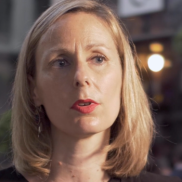

Finance professions
Management Controller: missions, skills, training, salary and career development
With the increasing complexity of financial operations and the need to optimise resources, the role of Management Controller has become central. Responsible for overseeing financial management and steering economic performance, this professional helps companies achieve their profitability and growth objectives in a constantly changing market.
Description of the job of Management Controller
The Management Controller is a key player in the planning and monitoring of a company's financial performance. Their main task is to optimise the company 's resources by providing accurate financial analyses and implementing control tools. The Management Controller liaises between the operational departments and management to guarantee the profitability and efficiency of operations.
They are involved in drawing up budgets, monitoring expenditure, analysing variances between forecasts and actuals, and setting up management charts. Their role also includes ensuring that internal procedures are compliant and that financial standards are applied. They also play a strategic role in advising management on the decisions to be taken to improve the company's economic performance.
Reporting to the Chief Financial Officer or the Chief Executive Officer, the Financial Controller may progress to the position of Chief Financial Officer, Head of Management Control or Business Unit Director.
What is the role and remit of the Management Controller?
Drawing up budgets
Budget management is one of the fundamental tasks of the Financial Controller. They work with all the company's departments to draw up a realistic budget that aligns the company's financial objectives with its operational capacities. The Financial Controller uses specialised software to create interactive dashboards to monitor expenditure and income against forecasts.
Variance analysis
Analysing variances between budget forecasts and actual results is a daily task. The Management Controller identifies significant variations and seeks to understand the reasons for them. This may include fluctuations in production costs, variations in sales, or changes in market conditions. This analysis enables corrective measures to be put in place to align performance with financial objectives.
Monitoring financial performance
The Financial Controller plays a crucial role in monitoring the company's financial performance . He sets up key performance indicators (KPIs) and dashboards to monitor the efficiency of operations and the profitability of activities. These tools enable management to make informed decisions based on up-to-date, accurate data.
Cost optimisation
The Management Controller is responsible for monitoring and optimising costs within the company. They analyse production costs, overheads and operating expenses to identify opportunities for cost reduction. This mission is essential to improving the company's profitability and ensuring efficient use of available resources.
Strategic and technological intelligence
To remain competitive, Controllers must keep abreast of the latest trends and developments in financial management and related technologies. They take part in ongoing training and seminars to acquire new skills and implement innovative solutions within the company.
Tools and technologies used by the Financial Controller
Technological tools play a crucial role in the functions of the Financial Controller. Here are some of the main tools used:
Enterprise Resource Planning (ERP) software
ERP software such as SAP, Oracle and Microsoft Dynamics is widely used to integrate and automate financial and operational processes. These tools enable Controllers to centralise financial data and improve the efficiency of management processes.
Dashboards and reporting
Interactive dashboards and reporting software such as Tableau, Power BI and QlikView enable the Financial Controller to visualise financial data in real time and produce detailed reports. These tools facilitate data analysis and informed decision-making.
Budget planning tools
Software such as Anaplan and Adaptive Insights are used for budget planning and financial forecasting. These tools allow the Controller to create accurate budgets and simulate different financial scenarios to plan the future of the business.
What skills do you need to be a good Financial Controller?
Professional skills:
- Mastery of management control techniques: In-depth knowledge of management control tools and methods.
- Accounting and finance skills: Good understanding of accounting principles and financial statements.
- Analysis and reporting: Ability to analyse complex financial data and produce clear and relevant reports.
Personal skills:
- Rigour and organisation: Ability to manage several tasks in a methodical and precise manner.
- Communication skills: Ability to explain complex financial concepts to non-specialists.
- Analytical thinking: Ability to identify problems and propose innovative solutions.
- Leadership and collaboration: Ability to work as part of a team and influence the decisions of other departments.
What are the current challenges facing a Financial Controller?
Digital transformation and digitalisation
The digitalisation of management control processes is a major challenge. The implementation of integrated management software (ERP) and the use ofartificial intelligence for data analysis are major challenges.
Risk management and regulatory compliance
With regulations changing so rapidly, Controllers need to keep a constant watch and adapt internal procedures to ensure compliance.
Continuous improvement and cost optimisation
Controllers must constantly seek to improve internal processes and optimise costs to maintain the company's competitiveness .
How do I become a Financial Controller?
Education and training
To become a Financial Controller, you should have a 5-year degree in finance, accounting, management or auditing. The following courses are particularly popular:
- Master's degree in management control, finance or accounting.
- Business school diploma with a specialisation in finance.
- Accounting diplomas such as the DCG (Diplôme de Comptabilité et de Gestion) and the DSCG (Diplôme Supérieur de Comptabilité et de Gestion).
EM Normandie offers courses tailored to this profession, in particular the Programme Grande École and its Master 2 in Audit and Finance. This course provides the skills needed to excel in the role of Management Controller by offering a combination of theoretical teaching and professional practice.
Professional experience
Previous professional experience in finance, accounting or auditing is often required. Internships and sandwich courses offer valuable opportunities to gain this practical experience.
What are the career prospects for a Financial Controller?
Management Controllers can progress to positions such as Finance Director, Head of Management Control or Business Unit Director. They may also consider opportunities abroad or in larger companies.
What does a Financial Controller earn?
The salary of a Financial Controller varies according to experience, the size of the company and the sector of activity:
- Beginner: Gross monthly salary (approx.): €2,500 - €3,500
- 2-5 years' experience: Gross monthly salary (approx.): €3,500 - €5,000
- 5+ years' experience: Gross monthly salary (approx.): €5,000 and more
In what field does a Financial Controller work?
Management Controllers can work in a variety of sectors, such as:
- Industry: Analysis of production costs and optimisation of industrial processes.
- Services: controlling services and optimising margins.
- Public sector: managing the budgets of local authorities or public establishments.
- Start-ups and SMEs: Implementation of management tools and optimisation of financial resources.
In summary
The role of the Management Controller is essential in ensuring the economic performance and profitability of a company. With skills in finance, accounting, analysis and management, they play a strategic role in decision-making and optimising resources. The job offers varied and rewarding career prospects, with the potential to progress to positions in financial management or strategic unit management. The Financial Controller is essential for ensuring optimal management and sustainable development of the company, thereby contributing to its long-term success.
Programmes
See all programmesTestimonies
See all testimonies-
 Arthur Streichenberger
Arthur StreichenbergerYouth and Dynamism at Air France: Arthur's work-study track experience
Arthur Streichenberger, a work-study track student at Air France in the post of management controller, expresses his pride and admiration for his contribution to the pilot training programme sector.
-
 Anaïs Trentesaux
Anaïs TrentesauxDirector of Management Control at Courir
Anaïs Trentesaux graduated in 1999 and rose through the ranks to become Director of Management Control at Courir.
-
 Julien Clérot
Julien ClérotCo-founder of Jules et Jean
Find out more about Julien, co-founder of Jules et Jean, a fresh local produce market for consumers in the Manche department.
-
 Amaury Boelle
Amaury BoelleCo-founder of Kickston, investment bank
A 2014 graduate, Amaury set up his first company with a classmate in the final year of his Bachelor's degree. Today, he is in his tenth year of entrepreneurship. He sees each business launch as an apprenticeship.